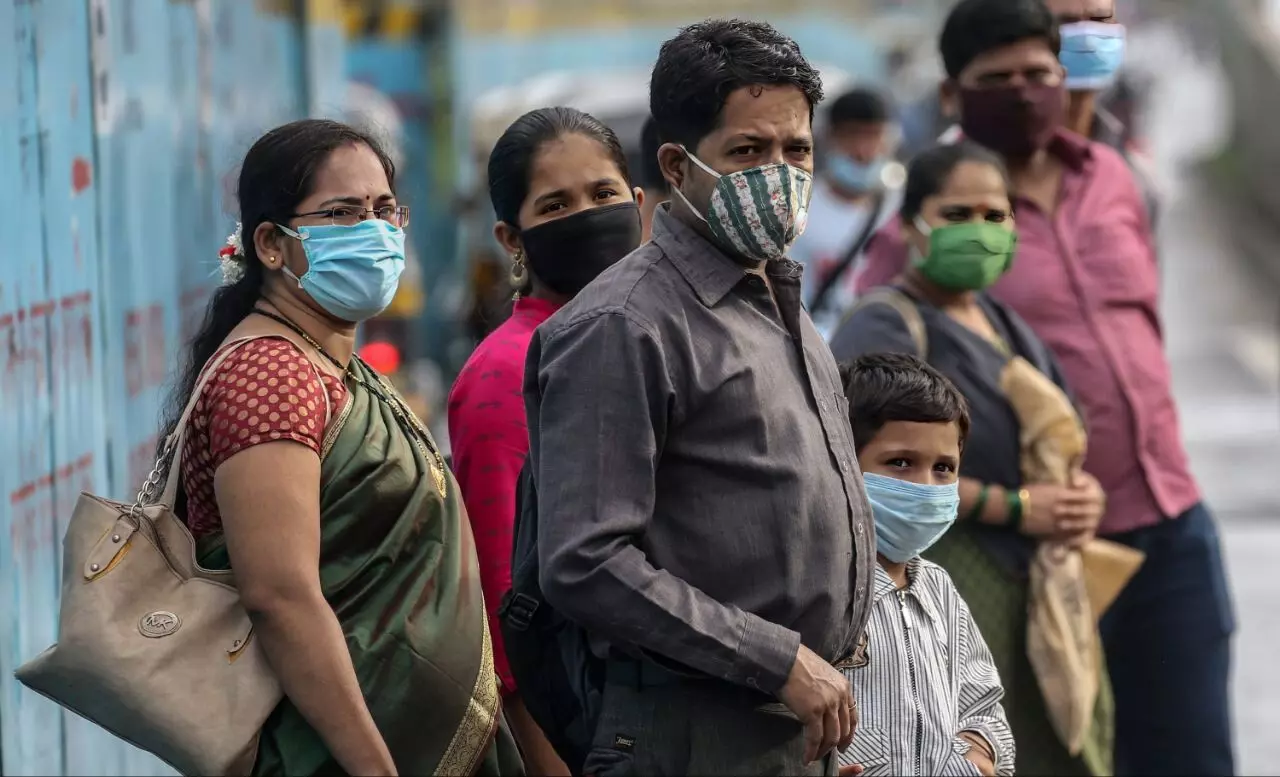Nationwide mock drills on 10 & 11 April: Centre issues Covid-19 advisory
Presently, the most prominent subtypes of influenza in circulation in the country are influenza A (H1Nl) and influenza A (H3N2)
By Newsmeter Network
Representational Image.
New Delhi: With the gradual increase in the number of Covid-19 cases in all states and Union Territories, the Union health ministry has issued a joint advisory. A nationwide mock drill is being planned on 10 and 11 April and states have been asked to take stock of hospital preparedness, including drugs, beds, medical equipment, and medical oxygen.
The advisory is issued by the Union health secretary, Rajesh Bhushan.
As of date, most of the active Covid-19 cases in the country are largely being reported in a few states like Kerala (26.4%), Maharashtra (21.7%), Gujarat (13.9%), Karnataka (8.6%), and Tamil Nadu (6.3%).
While the rates of hospitalisation and deaths due to the disease remain low, largely because of the significant coverage achieved in terms of Covid-19 vaccination, this graduate rise in cases needs reinvigorated public health actions to contain the surge.
All states and Union Territories have been asked to keep a close watch on the evolving etiologies (causes of diseases) of influenza-like illness (lLl) and severe acute respiratory illness (SARI) cases. According to the ministry of health, India usually sees a seasonal rise in influenza cases from January to March and again from August to October. Presently, the most prominent subtypes of influenza in circulation in the country are influenza A (H1Nl) and influenza A (H3N2).
“Covid-19 and influenza share a number of similarities in terms of mode of transmission, high-risk population, and clinical signs and symptoms. While this may present a clinical dilemma for the attending doctors in terms of diagnosis, this also renders both these diseases easily preventable by following simple public health measures,” said the health advisory.
Arcturus is worth monitoring
XBB1.16 aka Arcturus, a new sub-lineage of the XBB variant of Omicron of SARS Cov-2, is identified as having a high transmission rate as it is spreading quickly. According to Dr. Vipin M. Vashishtha, a member of WHO’s Vaccine Safety Net who has been tracking new Covid variants, Arcturus has already spread to 20 countries. Apart from India, rapid growth is seen in the US, Japan, and NSW (New South Wales, Australia), he said.
More updates on XBB.1.16 aka #Arcturus
— Vipin M. Vashishtha (@vipintukur) March 25, 2023
-It has already spread to 20 countries
-Total Sequences: 629
-Apart from India, rapid growth is seen in the US, Japan & NSW
-A new child of it-XBB.1.16 has already emerged & designated:
XBB.1.16.1 = XBB.1.16 + Spike T547I. 1/ pic.twitter.com/KctbHZobw7
He tweeted that at present, the XBB1.16 is probably not a cause for great concern but worth monitoring. But he warned that it has the potential to spread globally and replace all other currently circulating variants.
Centre’s guidelines to states/UTs
· ILI, SARI, and influenza cases are monitored by IDSP as well as by the Comprehensive Network of Labs of Indian Council of Medical Research (ICMR) under Integrated Disease Surveillance Programme (IDSP).
· State/district IDSP units need to closely follow the trend of ILI/SARI, monitor the proportion of SARI cases, and refer sufficient number of samples for testing for influenza and SARS-CoV2.
· Technical guidelines issued for seasonal influenza, and Covid-19
· States/UTs to undertake re-orientation of frontline health workers on epidemiological case definitions to help early diagnosis and prompt treatment.
· Need to raise community awareness regarding adherence to respiratory and hand hygiene particularly.
· States should take a stock of hospital preparedness, including drugs, beds (including lCU beds), medical equipment, medical oxygen, capacity building of human resource on existing guidelines as well as vaccination coverage.
· A nationwide mock drill is being planned on 10 and 11 April, wherein health facilities (both public and private) from all districts are expected to participate.
Precautions to be taken
· Avoiding overcrowded and poorly-ventilated settings particularly by co-morbid persons and the elderly.
· Wearing of masks by doctors, paramedics, and other healthcare works as well as patients and their attendants within health care facilities.
· Wearing of masks in crowded and closed settings.
· Using handkerchief/tissue to cover nose and mouth while sneezing or coughing.
· Maintaining hand hygiene/frequent washing of hands.
· Avoiding spitting in public places.
· Promoting testing and early reporting of symptoms.
· Limiting personal contact if suffering from respiratory diseases.